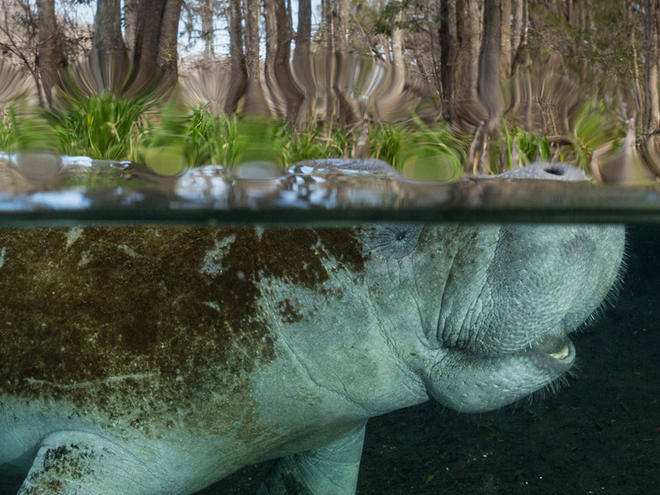

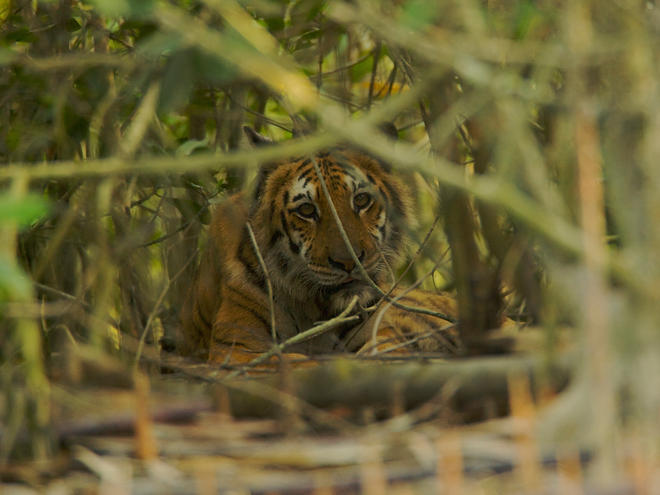
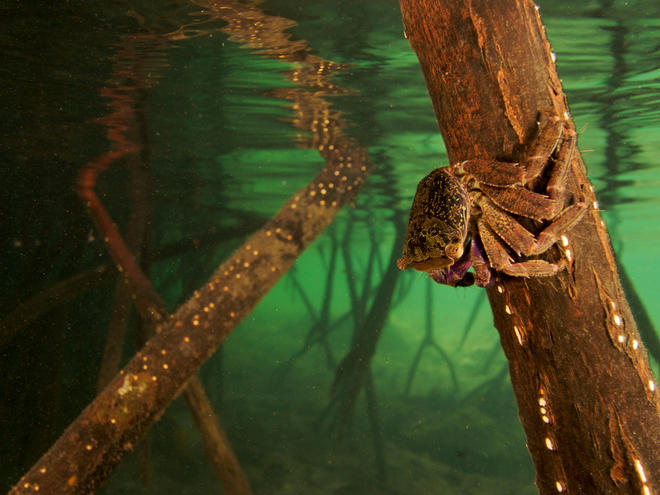

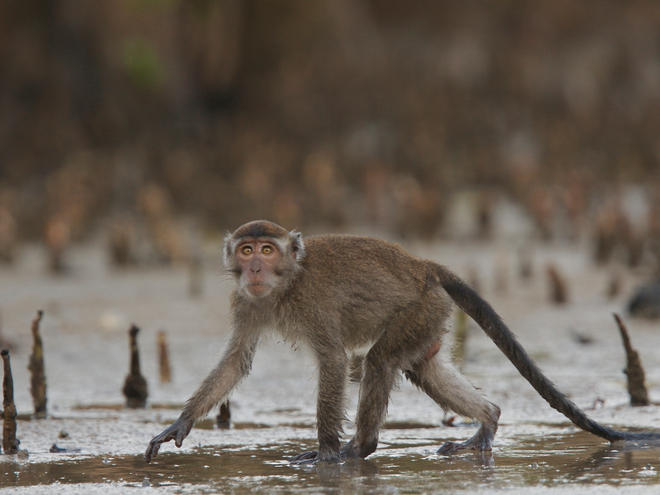
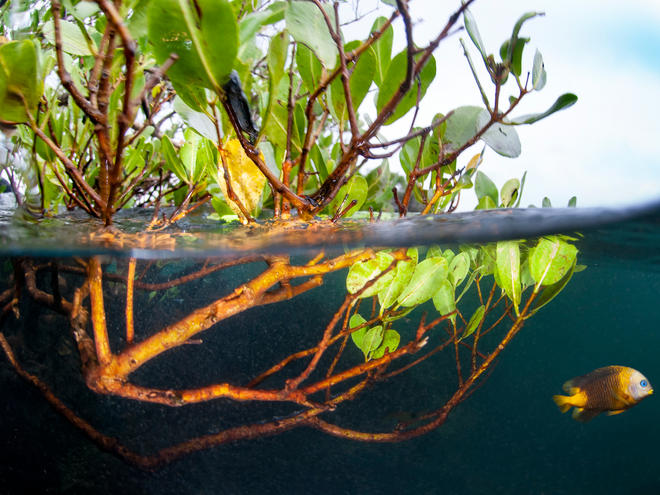
Manatees love mangroves; they use them for food and a quiet place to rest and raise their young. But these two key features of the Florida coasts are in trouble. There are, a rebound from previous years, but they continue to face threats. Almost 800 died in 2018 alone. And in the past 100 years, mangrove forests have been cleared at an alarming rate. Tampa Bay has lost nearly 50 percent of its mangroves, while farther south, the mangroves of Charlotte Harbor estuary have declined by nearly 60 percent.
But it’s not a lost cause. By addressing four key threats to both manatees and mangroves, they can thrive for generations to come.
Unsustainable Coastal Development and Infrastructure
The unique natural resources of the Florida coast have spawned a booming economy enjoyed by both residents and tourists. But after years of ill-considered coastal development, we’re jeopardizing the very resources that enabled this growth. We’ve cleared mangrove forests and wetlands to make way for resorts, harbors, roads, city expansion, and industry -- losing all the benefits they provide to both humans and wildlife. Infrastructure also brings people and pollution, adding to the risks of red tides and other impacts.
Poor Farm and Water Management Upstream
When farms upstream overuse or improperly manage pesticides, fertilizers, animal waste, and other toxic chemicals, those chemicals can enter the water supply. The polluted water flows to the coast and harms wild plants and animals.
The problem of poor water management is compounded by dams and irrigation systems that reduce the amount of freshwater flowing to the wetlands. Mangroves are tolerant of saltwater, but they need the right balance of freshwater too or else they can become too salty or dry out and die.
Irresponsible Fishing and Aquaculture
Overfishing can remove links in the marine food chain while fish farming can add excessive nutrient waste. Both shift the delicate balance of marine ecosystems and make deadly red tides – algae blooms that affect manatees and mangroves – more likely.
Fishers also accidentally snare manatees in nets and strike them with boats. And irresponsible aquaculture around the world has cleared mangrove forests to make way for fish and shrimp ponds.
Climate Change
Climate change is impacting all life on Earth, and manatees and mangroves are no exception. Abnormal weather means more cold snaps, to which manatees are very sensitive; around 70 individuals died from cold stress in 2018. For mangroves, sea level rise is the biggest climate-related threat, with some tree species unable to tolerate the influx of saltwater or escape the surging tides. Coastal wetlands, including mangrove forests, absorb a significant amount of greenhouse gas emissions. When these forests are cleared, we compound the climate change problem by releasing even more carbon into the atmosphere.
WWF is already fighting to save manatees and mangroves by addressing each of these threats: developing and implementing practices for responsible seafood; rethinking how and where we grow food to minimize impacts; advocating to keep rivers free-flowing; consulting with governments and financers for sustainable infrastructure; and working at all levels to prevent the worst impacts of climate change.
The beautiful thing is that taking these actions will not only secure a future for manatees and mangroves; it will bolster the entire coastal ecosystem. This includes other marine and terrestrial animals, seabirds, coral reefs, and even people. By taking action now in key areas, we can protect the beautiful Florida coasts and all life that depends.
Many species of birds, fish, mammals, reptiles, insects, and amphibians depend on coastal ecosystems like mangroves. Here are just a few.
Published July 25, 2019 at 05:00AM
No comments:
Post a Comment